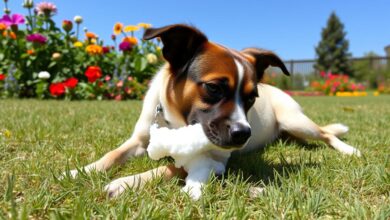Essential Horse Feeding Guide : Top 10 Nutrition Tips
Feeding your horse the right diet is crucial to maintaining its overall health, energy, and performance. With a variety of feeding options and dietary needs depending on your horse’s age, activity level, and health status, it’s important to provide a well-balanced, nutritious diet that meets your horse’s specific requirements. In this essential horse feeding guide, we’ll cover the basics of proper horse nutrition, feeding practices, and tips for keeping your horse healthy and happy.
1. Understanding a Horse’s Nutritional Needs
A horse’s diet should primarily consist of forage, such as hay or grass, which provides the bulk of the fiber they need for healthy digestion. However, horses also require a balanced mix of vitamins, minerals, proteins, and fats to maintain optimal health.
- Forage: This should make up at least 50% to 80% of a horse’s daily diet. Hay, grass, or pasture grazing should be available at all times, as horses are natural grazers and need to eat small amounts throughout the day to support proper digestion.
- Concentrates: Grains, such as oats, corn, and barley, can be added to a horse’s diet if they require extra energy. Concentrates are often fed to horses with higher activity levels, such as performance horses or those in training, but should be given in moderation to avoid digestive issues.
- Vitamins and Minerals: Ensure your horse is getting essential nutrients like calcium, phosphorus, and vitamins A, D, and E. Depending on the forage and grain you provide, additional supplements may be necessary to meet your horse’s specific needs.
- Water: Fresh, clean water is essential. Horses need an average of 5 to 10 gallons of water per day, but this can vary based on climate, activity level, and diet.
2. Forage: The Foundation of a Horse’s Diet
Forage should be the cornerstone of your horse’s diet, providing fiber that is essential for healthy digestion and preventing issues like colic or ulcers.
- Hay: High-quality hay is one of the most common sources of forage. Look for hay that is green, smells fresh, and is free from dust, mold, and weeds. The most common types of hay for horses include timothy, alfalfa, and orchard grass.
- Pasture Grazing: If your horse has access to good-quality pasture, grazing can provide all the forage they need. However, the pasture must be well-maintained, free of toxic plants, and provide ample grass for your horse to graze throughout the day.
- Hay Alternatives: If hay is not readily available, hay pellets, cubes, or beet pulp can be used as a substitute. These alternatives can also be useful for horses with dental issues or those that need an extra source of fiber.
3. Concentrates and Grains: When to Feed Them
While forage is the most important part of a horse’s diet, some horses may require additional concentrates or grains to meet their energy needs, particularly if they are in heavy work or competition.
- Oats: Oats are one of the most commonly fed grains to horses because they are easy to digest and provide a good source of energy. However, they should be fed in moderation to prevent overfeeding and digestive upset.
- Corn: Corn is higher in energy than oats but should also be fed carefully. It can be a good option for horses that need to gain weight but should not be overfed as it can lead to obesity or laminitis.
- Barley: Barley is another grain option that provides energy, but it is not as easily digestible as oats or corn. Some owners feed barley to horses that need extra energy without the “heat” that corn can sometimes cause.
- Pelleted or Textured Feeds: Commercially prepared feeds can offer a balanced mix of grains, vitamins, and minerals. These are often used to supplement forage and ensure horses receive all the nutrients they need, especially when pasture quality is low or hay lacks sufficient nutrients.
4. Vitamin and Mineral Supplements
In some cases, your horse may need additional vitamins or minerals to round out their diet. While good-quality hay and pasture provide many essential nutrients, horses with specific needs may benefit from supplements.
- Salt and Electrolytes: Salt blocks or loose salt should be available to your horse at all times to maintain electrolyte balance. In hot weather or after intense exercise, electrolyte supplements may be needed to replace lost salts.
- Calcium and Phosphorus: These minerals are vital for bone health and should be provided in balanced ratios, particularly for young growing horses or pregnant mares.
- Vitamin E and Selenium: Horses that are on limited pasture, particularly in areas with selenium-deficient soils, may require supplementation of these important antioxidants.
5. Feeding Guidelines Based on Horse Type
Every horse is unique, and feeding recommendations will vary based on factors like age, weight, activity level, and health status. Here are some general guidelines to follow:
- For Maintenance Horses: Horses that are not in work or are lightly exercised typically do well on a forage-only diet with occasional supplementation of vitamins and minerals as needed.
- For Performance Horses: Horses that are in regular, intense work will require additional calories and protein to maintain energy levels and muscle mass. These horses often benefit from a diet that includes both forage and concentrates.
- For Senior Horses: Older horses may need a specialized diet, particularly if they have trouble chewing or digesting regular hay. Hay alternatives like pellets or cubes, along with senior feeds, are often easier to digest and provide the necessary nutrients.
- For Underweight Horses: Horses that need to gain weight should be provided with high-quality forage and additional concentrates or fat sources like oil to increase caloric intake.
6. Common Feeding Mistakes to Avoid
Proper horse nutrition requires attention to detail. Here are some common mistakes new horse owners should avoid:
- Overfeeding Grain: Feeding too much grain can lead to digestive issues, such as colic or laminitis. Always prioritize forage and only feed grain when necessary.
- Inconsistent Feeding Schedule: Horses thrive on routine, and irregular feeding times can cause stress and digestive problems. Aim to feed your horse at the same times each day.
- Feeding Moldy or Dusty Hay: Poor-quality hay can cause respiratory issues and digestive problems in horses. Always inspect your hay for mold, dust, or foreign objects.
- Skipping Water: Horses need constant access to clean water. Dehydration can lead to serious health issues, so ensure that your horse’s water supply is always fresh and readily available.
7. Special Considerations for Horses with Health Issues
Some horses may have specific health concerns that require specialized feeding practices. Always consult with your veterinarian or equine nutritionist if your horse has any of the following conditions:
- Insulin Resistance or Equine Metabolic Syndrome: These horses are sensitive to sugar and starches and should be fed a low-carb, high-fiber diet. Avoid grains and rich pasture, and provide low-sugar hay.
- Laminitis: Horses with a history of laminitis need careful diet management to avoid flare-ups. Feeding low-sugar, low-starch hay and avoiding grains is essential.
- Cushing’s Disease: Horses with Cushing’s disease often benefit from a diet rich in fiber and low in sugar. Specialized feeds for metabolic conditions can help manage symptoms.
8. Monitor Your Horse’s Body Condition
Regularly monitoring your horse’s weight and body condition is essential for ensuring they are receiving the correct amount of feed. Use the Body Condition Scoring (BCS) system to evaluate whether your horse is underweight, overweight, or at an ideal weight.
- Adjust Feed Accordingly: If your horse starts losing weight, increase their caloric intake with more forage or grain. If they gain too much weight, reduce grain intake and increase exercise.
9. Feeding According to Workload
Your horse’s workload plays a significant role in determining their dietary needs. Horses that engage in light work, such as trail riding or occasional arena work, have different nutritional requirements than horses that are used for performance or competitive events.
- Light Work: Horses in light work typically do well on a forage-based diet with minimal grain supplementation. You may only need to provide additional concentrates if they begin to lose weight or require more energy.
- Moderate to Heavy Work: Horses in regular training, competition, or strenuous work need more energy and protein to support muscle development and maintain endurance. They benefit from a balanced combination of forage and high-quality concentrates, such as grains or pelleted feeds.
- Recovery Periods: After a period of intense work, adjust your horse’s feed accordingly to allow for recovery. Offer high-quality forage and supplements like electrolytes to replenish energy and support muscle recovery.
10. Feeding for Weather Conditions
The changing seasons can also impact your horse’s feeding needs. Horses may require different amounts or types of feed depending on the weather conditions they are exposed to.
- Winter Feeding: During colder months, horses require more forage to generate heat through digestion and maintain body temperature. Increasing the amount of hay you provide can help keep your horse warm, as the fermentation process in the gut produces heat.
- Summer Feeding: In hotter climates, horses may need less forage and more water to stay hydrated. Electrolyte supplements can help replace minerals lost through sweating during exercise in hot weather.
Conclusion
Providing proper nutrition for your horse is essential for their overall health, well-being, and performance. This essential horse feeding guide highlights the importance of a well-balanced diet, primarily focused on forage, while incorporating grains, vitamins, and minerals as needed based on the horse’s individual needs. By understanding your horse’s dietary requirements and maintaining a consistent feeding routine, you’ll ensure they remain healthy, happy, and ready for whatever adventures lie ahead.





